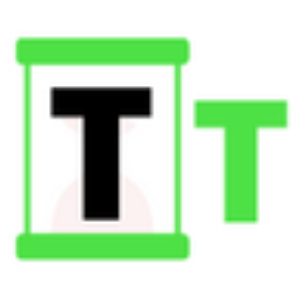Senator Lummis Expresses Grave Concerns Over Trump Memecoin Dinner, Pushing for Urgent Digital Asset Rules
7 min read
The world of cryptocurrency is rapidly intersecting with traditional politics, creating new dynamics and, at times, raising eyebrows. A recent event involving a popular memecoin tied to former President Donald Trump has ignited a conversation among lawmakers, particularly concerning transparency and ethics for elected officials holding digital assets. At the heart of this discussion is Wyoming Senator Cynthia Lummis, a well-known supporter of the crypto space, who voiced significant concerns following news of a private dinner planned for top holders of the TRUMP memecoin. Why is Senator Lummis Concerned About the Trump Memecoin Dinner? Senator Cynthia Lummis, a Republican representing Wyoming, is one of the most vocal proponents of cryptocurrency on Capitol Hill. Her support stems from a belief in the innovation and potential of digital assets and blockchain technology. She even publicly disclosed her own Bitcoin holdings, setting an example for transparency in a nascent asset class. However, her support for the technology doesn’t blind her to potential ethical pitfalls. According to a report by CNBC, Senator Lummis specifically highlighted the need for standardized rules governing how elected U.S. officials hold and disclose digital assets. Her comments were a direct reaction to the news surrounding President Donald Trump’s upcoming gala dinner. The dinner, scheduled for May 22nd in Washington, D.C., is reportedly a private event for the top 220 holders of the TRUMP memecoin (ticker: TRUMP). The event’s website, GetTrumpMemes, promotes this exclusive gathering. While former presidents are not subject to the same disclosure rules as sitting officials, the nature of the event—a private dinner for holders of a specific, volatile digital asset tied to a political figure—raises questions about influence, access, and the potential for conflicts of interest, particularly if current officials were to attend or if the precedent impacts future interactions. Senator Lummis’s concern centers on the lack of clear, mandated rules for current elected officials regarding their digital asset holdings. Unlike stocks, bonds, or real estate, the regulatory framework for digital assets is still evolving, and disclosure requirements for politicians are not as standardized or comprehensive. The Need for Clear Digital Asset Rules for US Officials The current situation highlights a gap in existing ethics and transparency regulations. While officials are required to disclose holdings of traditional assets, the rules for cryptocurrencies and other digital assets are less defined. This ambiguity creates several challenges: Transparency: Without clear rules, it’s difficult for the public to know which digital assets their representatives hold and whether those holdings could influence their legislative decisions. Conflicts of Interest: An official holding significant amounts of a specific digital asset could face conflicts when voting on legislation that might impact that asset’s value or regulatory status. Market Integrity: If officials possess non-public information that could affect the value of digital assets they hold, it raises concerns similar to insider trading in traditional markets. Public Trust: A lack of clear rules and transparency can erode public trust in government and the legislative process, especially as digital assets become more mainstream. Senator Lummis’s call for legislation aims to address these issues by creating a level playing field and ensuring that digital asset holdings are subject to the same level of scrutiny and disclosure as traditional assets. This would involve defining what constitutes a reportable digital asset, setting clear thresholds for disclosure, and establishing penalties for non-compliance. Beyond Senator Lummis: Other Voices of Concern Senator Lummis is not alone in expressing unease about the situation. Alaska Senator Lisa Murkowski, also a Republican, reportedly echoed similar concerns about the TRUMP memecoin dinner event. This suggests that the issue is not confined to one political viewpoint but touches upon broader ethical considerations that resonate across the aisle. The fact that senators from different states and potentially different political leanings on other issues are highlighting this concern underscores its importance. It signals a growing awareness within the U.S. Senate about the potential implications of the increasing overlap between political figures and the often-unregulated world of memecoins and other digital assets. Understanding Memecoins and Political Figures Memecoins are a unique and often volatile segment of the cryptocurrency market. Unlike Bitcoin or Ethereum, which were designed with specific technological goals, memecoins are often created as social experiments, jokes, or, in this case, tied to cultural or political figures. Their value is often driven by social media trends, community hype, and speculation rather than underlying technology or utility. The existence of a memecoin specifically tied to a prominent political figure like Donald Trump is a relatively new phenomenon. While it can be seen by supporters as a way to engage a community or even as a form of political fundraising (though the dinner is for holders, not necessarily a direct fundraiser), it inherently links a political brand to a speculative, unregulated financial instrument. This linkage is precisely what raises red flags for lawmakers concerned about ethics and influence. The volatility and speculative nature of memecoins make the need for clear disclosure rules even more pressing for public officials. A sudden surge or drop in value could create significant financial incentives or pressures that could potentially sway an official’s stance on relevant legislation. Comparing Rules: Traditional Assets vs. Digital Assets for US Officials To better understand the gap Senator Lummis is highlighting, it’s useful to compare the existing rules for traditional assets with the current state for digital assets: Asset Type Disclosure Requirements for US Officials Challenges with Digital Assets Stocks, Bonds, Mutual Funds Generally clear rules under the Ethics in Government Act; required annual financial disclosures detailing holdings, transactions, and income. Blind trusts are an option to avoid conflicts. Established valuation methods; regulated markets; clear ownership records. Real Estate Required annual disclosure of property holdings, income, and transactions. Tangible asset with established valuation methods and public records. Cryptocurrencies & Digital Assets (e.g., Bitcoin, Ethereum, Memecoins) Disclosure requirements are less clear and standardized. While some officials disclose voluntarily, specific rules for *all* digital assets, valuation methods, and transaction reporting are not as robust or universally applied as for traditional assets. The definition of what constitutes a ‘security’ or ‘commodity’ in the digital asset space is also still debated, adding complexity. Volatile prices; difficulty in valuation (especially for smaller tokens/memecoins); potential for anonymity; rapid transaction speeds; diverse range of asset types (fungible tokens, NFTs, etc.). This table illustrates the regulatory lag when it comes to digital assets. The existing framework, designed for traditional finance, doesn’t easily accommodate the unique characteristics of cryptocurrencies and memecoins. Potential Impacts and the Path Forward for Crypto Regulation The concerns raised by Senator Lummis and others underscore the increasing urgency for comprehensive crypto regulation in the United States. While significant debate exists on *how* to regulate the space, there is growing consensus on the need for clarity, particularly concerning consumer protection, market integrity, and, as highlighted here, the ethical considerations for public officials. Legislation addressing digital asset holdings by officials could be part of broader regulatory efforts. Such legislation might include: Clear definitions of reportable digital assets. Specific thresholds for disclosure (e.g., value held). Requirements for reporting transactions (buys, sells, exchanges). Guidelines on how to value digital assets for disclosure purposes. Rules regarding participation in events tied to specific digital assets. Potential restrictions on holding certain types of digital assets while in office, especially those directly related to legislative matters. The involvement of a prominent political figure and a memecoin in this specific instance brings the issue into sharp focus. It moves the conversation from abstract regulatory principles to concrete examples that the public can more easily understand. Actionable Insights for the Crypto Community and Voters For individuals involved in the cryptocurrency space or simply concerned about government ethics, this development offers several key takeaways: Pay Attention to Legislation: Follow legislative proposals related to crypto regulation and government ethics. Senator Lummis is a key figure in this space, but many other lawmakers are also engaged. Advocate for Transparency: Support initiatives and proposals that promote transparency regarding elected officials’ financial holdings, including digital assets. Understand the Risks of Memecoins: While memecoins can offer speculative opportunities, be aware of their inherent volatility and the potential for manipulation or association with political or social movements that may carry their own risks. Engage with Representatives: Contact your elected officials to share your views on crypto regulation and the importance of ethical standards for those in public office. This event serves as a powerful reminder that as digital assets become more integrated into the economy and society, the regulatory and ethical frameworks governing them must evolve as well. The concerns raised by Senator Lummis are a critical step in prompting that necessary evolution. Compelling Summary: Navigating the Crypto-Political Crossroads The news surrounding the Trump memecoin dinner and the subsequent concerns voiced by Senator Cynthia Lummis and Senator Lisa Murkowski underscore a critical juncture at the intersection of cryptocurrency and U.S. politics. While digital assets offer exciting potential, their increasing presence in the financial lives of elected officials highlights an urgent need for clear, standardized rules regarding disclosure and potential conflicts of interest. Senator Lummis, a staunch crypto advocate, is paradoxically leading the charge for greater regulation in this specific area, recognizing that transparency is vital for maintaining public trust and ensuring ethical governance. As memecoins and other digital assets become intertwined with political figures and events, the call for comprehensive legislation to govern officials’ holdings grows louder, signaling a necessary evolution in how the U.S. navigates the complex and rapidly changing landscape of digital finance within the political sphere. To learn more about the latest explore our article on key developments shaping crypto regulation in the US.

Source: Bitcoin World



